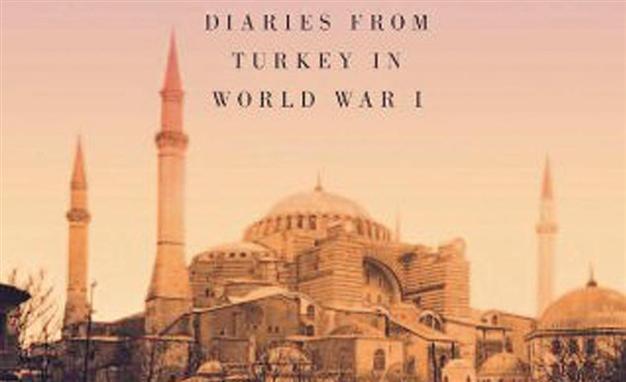Among the Ottomans : Diaries from Turkey in World War I
William Armstrong - william.armstrong@hdn.com.tr
 ‘Among the Ottomans: Diaries from Turkey in World War I,’ by Ian Lyster (ed.) (I.B. Tauris, 2010 50TL, pp 208)
‘Among the Ottomans: Diaries from Turkey in World War I,’ by Ian Lyster (ed.) (I.B. Tauris, 2010 50TL, pp 208)Although this volume of two journals written during the First World War is titled “Among the Ottomans,” there is in fact little mingling between their British writers and ordinary Ottoman subjects. The first diary is that of Marie Lyster, who lived in the European bubble of Istanbul’s Beyoğlu neighborhood at the beginning of the 20th century. The second was written by her son, Henry Lyster, looking back on the time when he was posted as a British soldier to the frontline on the edges of the Ottoman Empire. Both are probably of more interest to the academic than the general reader, but they do still contain some nuggets of curiosity for those more broadly interested in the period.
Marie Lyster’s husband worked for the Ottoman Bank in Istanbul before hostilities broke out between the Allied and Central powers. He and his sons were then conscripted into the British Armed Forces, leaving Marie alone in the Ottoman capital to look after her elderly mother until the end of the war. Unsurprisingly, her diary from this time is therefore overwhelmingly concerned with domestic matters – odd jobs, errands, searching for lodgers, dealing with problematic servants, and teaching occasional English lessons. She lived on her husband’s money, but still had a thrifty, even rather austere existence, perennially worried about inflation and the vagaries of wartime rations. Particularly striking is the fact that she mentions coming into regular contact with officially hostile Austrians and Germans - “bless the poor dears” – never seeming to bear them any grudges whatsoever (and vice versa). Marie’s diaries come from a time when Istanbul was still a truly international city, and she herself seems to have had contact with almost every foreign nationality living there. Her isolation from ordinary Turks is almost reminiscent of some modern-day expat circles in Istanbul.
The domestic quality of Marie’s diary contrasts noticeably with that of her son, Henry Lyster’s. As a British soldier posted to the edges of the Ottoman Empire as it was steadily falling apart, it’s not surprising that his reflections are slightly more swashbuckling than his mother’s. There is also the fact that his reflections were written a number of years after the events described, so he was able to edit out some of the less interesting chaff. After a brief preamble, Henry’s diary moves swiftly on to consider his brief posting to the Dardenelles in the failed Gallipoli offensive in 1915, shortly after which he was posted to serve as an intelligence officer to support the work of Greek irregulars fighting the Bulgarians outside Salonica. He was moved once again later on, this time to work inside Ottoman territory, where he was set to get involved in even more British imperial skullduggery. However, the tide turned a few years later while he was posted in the town of İzmit, where he witnessed some of the early stages of the Turkish independence struggle, the Kemalist forces facing down the invading Greeks and beginning to drive them back to the Aegean. For the lay reader, this is probably the most interesting section of Henry’s diary.
It’s probably needless to say that neither he nor his mother were great literary stylists. The two were writing about extraordinary times, but neither had anything other than an ordinary eye for detail, writing in rather flat, colorless prose. Nevertheless, their diaries still hold some value as first-hand witnesses of history, and it’s a good thing that they have been recovered here for modern-day readers.
Notable recent release
‘Nâzim Hikmet: The Life and Times of Turkey’s World Poet’ by Mutlu Konak Blasing
(Persea, $30, pp 288)
William Armstrong,
 ‘Among the Ottomans: Diaries from Turkey in World War I,’ by Ian Lyster (ed.) (I.B. Tauris, 2010 50TL, pp 208)
‘Among the Ottomans: Diaries from Turkey in World War I,’ by Ian Lyster (ed.) (I.B. Tauris, 2010 50TL, pp 208)